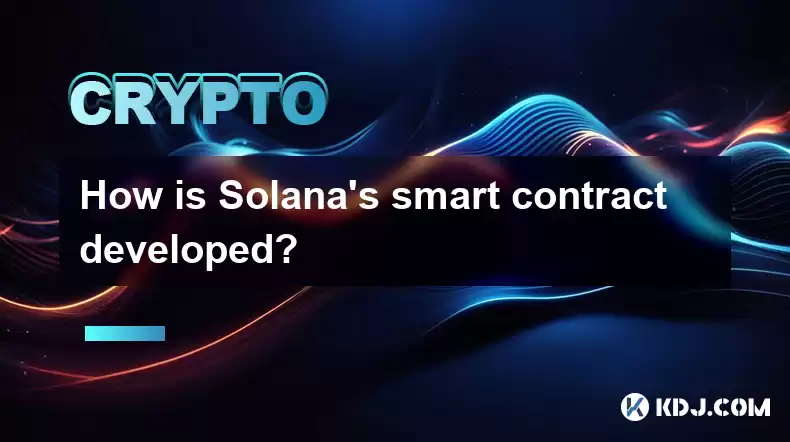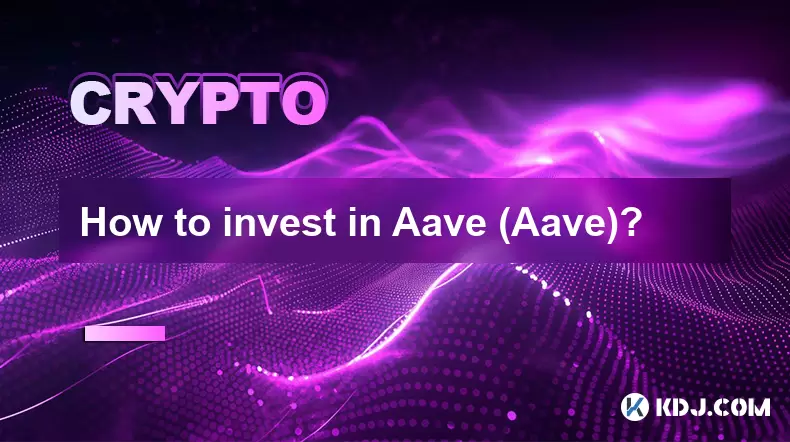-
 Bitcoin
Bitcoin $117300
1.99% -
 Ethereum
Ethereum $3884
5.89% -
 XRP
XRP $3.268
9.33% -
 Tether USDt
Tether USDt $1.000
0.02% -
 BNB
BNB $783.0
1.78% -
 Solana
Solana $173.6
3.51% -
 USDC
USDC $0.9999
0.00% -
 Dogecoin
Dogecoin $0.2193
7.00% -
 TRON
TRON $0.3380
0.30% -
 Cardano
Cardano $0.7769
5.08% -
 Stellar
Stellar $0.4350
9.36% -
 Hyperliquid
Hyperliquid $40.23
5.78% -
 Sui
Sui $3.739
6.95% -
 Chainlink
Chainlink $18.30
9.46% -
 Bitcoin Cash
Bitcoin Cash $581.7
2.11% -
 Hedera
Hedera $0.2577
5.51% -
 Ethena USDe
Ethena USDe $1.001
0.00% -
 Avalanche
Avalanche $23.08
4.23% -
 Litecoin
Litecoin $121.7
2.24% -
 UNUS SED LEO
UNUS SED LEO $8.962
-0.34% -
 Toncoin
Toncoin $3.332
1.36% -
 Shiba Inu
Shiba Inu $0.00001273
3.39% -
 Uniswap
Uniswap $10.35
6.84% -
 Polkadot
Polkadot $3.818
4.01% -
 Dai
Dai $1.000
0.01% -
 Bitget Token
Bitget Token $4.446
2.13% -
 Cronos
Cronos $0.1491
4.96% -
 Monero
Monero $255.4
-9.78% -
 Pepe
Pepe $0.00001099
4.80% -
 Aave
Aave $284.0
8.01%
How is Solana's smart contract developed?
For secure smart contract development, Solana utilizes Rust as its programming language, emphasizing safety and reliability through its strict type system and memory safety guarantees.
Feb 16, 2025 at 02:49 am

Key Points:
- Solana's smart contract programming language: Rust
- Solana's smart contract platform: Anchor
- Solana's smart contract development process
- Solana's smart contract deployment process
- Solana's smart contract security considerations
Solana's Smart Contract Development Process
1. Choose a Smart Contract Programming Language
Solana uses Rust as its smart contract programming language. Rust is a systems programming language that emphasizes safety, concurrency, and performance. It is known for its strict type system and memory safety guarantees, making it a good choice for developing secure and reliable smart contracts.
2. Install the Solana Development Environment
To develop smart contracts for Solana, you will need to install the Solana development environment. This includes the Solana command-line interface (CLI), the Rust compiler, and the Anchor framework. Anchor is a framework that simplifies the development and deployment of Solana smart contracts.
3. Create a Solana Smart Contract Project
Once you have installed the Solana development environment, you can create a new Solana smart contract project using the Anchor framework. This will create a new directory for your project and generate a set of default files.
4. Write Your Smart Contract Code
The next step is to write your smart contract code. You will typically define a set of instructions that the smart contract will execute when it is called. These instructions can include things like transferring tokens, updating balances, or creating new NFTs.
5. Compile Your Smart Contract
Once you have written your smart contract code, you will need to compile it. The compiler will check your code for syntax errors and generate a Solana program that can be deployed to the blockchain.
6. Deploy Your Smart Contract
To deploy your smart contract to the Solana blockchain, you will need to use the Solana CLI. The CLI will allow you to create a new transaction, sign it with your private key, and send it to the blockchain.
7. Monitor Your Smart Contract
Once your smart contract is deployed, you can monitor it using the Solana CLI. The CLI will allow you to view the smart contract's code, its state, and its transaction history.
Solana's Smart Contract Security Considerations
When developing smart contracts for Solana, it is important to consider the following security considerations:
- Use a Secure Programming Language: Rust is a secure programming language that makes it difficult to introduce vulnerabilities into your smart contracts.
- Follow Best Practices: Follow best practices for smart contract development, such as using strong variable names, avoiding unnecessary complexity, and testing your smart contracts thoroughly.
- Audit Your Smart Contracts: Have your smart contracts audited by a third-party security expert to identify and fix any potential vulnerabilities.
- Use a Reliable Smart Contract Platform: Anchor is a reliable smart contract platform that provides a safe and secure environment for deploying smart contracts.
FAQs
Q: What are the benefits of using Solana for smart contract development?
A: Solana offers several benefits for smart contract development, including high performance, low fees, and a secure programming language (Rust).
Q: What are the challenges of developing smart contracts for Solana?
A: The main challenges of developing smart contracts for Solana include the learning curve associated with Rust and the need to adhere to strict security best practices.
Q: What are some popular use cases for Solana smart contracts?
A: Solana smart contracts can be used for a wide range of applications, including decentralized finance (DeFi), non-fungible tokens (NFTs), and supply chain management.
Q: What are the future prospects for Solana smart contract development?
A: Solana smart contract development is a rapidly growing field, with new projects and use cases emerging all the time. As Solana continues to gain adoption, the demand for smart contract developers is likely to increase.
Disclaimer:info@kdj.com
The information provided is not trading advice. kdj.com does not assume any responsibility for any investments made based on the information provided in this article. Cryptocurrencies are highly volatile and it is highly recommended that you invest with caution after thorough research!
If you believe that the content used on this website infringes your copyright, please contact us immediately (info@kdj.com) and we will delete it promptly.
- Cold Wallet Crypto in 2025: The Future is Now, Ya'll
- 2025-08-08 05:10:13
- MAGACOIN, SOL, and ADA: A Tale of Shifting Tides in Crypto
- 2025-08-08 05:10:13
- SHIB Price, PEPE, and the Memecoin Supercycle: Who Will Reign Supreme?
- 2025-08-08 05:50:12
- Pudgy Penguins Price Prediction: Google Trends & Breakout Signals
- 2025-08-08 05:50:12
- UAE Crypto Regulation: SCA and VARA Unite to Streamline the Future of Digital Assets
- 2025-08-08 05:55:48
- MAGACOIN Finance: The Presale Phenomenon Rocking the Crypto World
- 2025-08-08 05:55:48
Related knowledge

Where can I buy UMA (UMA)?
Aug 07,2025 at 06:42pm
Understanding UMA and Its Role in Decentralized FinanceUMA (Universal Market Access) is an Ethereum-based decentralized finance (DeFi) protocol design...

What exchanges support buying IOTA (MIOTA)?
Aug 07,2025 at 09:58pm
Understanding the Role of Private Keys in Cryptocurrency SecurityIn the world of cryptocurrency, private keys are the cornerstone of ownership and con...

How to acquire Holo (HOT) tokens?
Aug 08,2025 at 05:56am
Understanding Holo (HOT) and Its EcosystemHolo (HOT) is a cryptocurrency token associated with the Holo ecosystem, which is built on the Holochain fra...

What is the best app to buy EOS?
Aug 07,2025 at 04:35pm
Understanding EOS and Its Role in the Cryptocurrency EcosystemEOS is a blockchain platform designed to support decentralized applications (dApps) with...

What platforms support buying Fantom (FTM)?
Aug 08,2025 at 01:56am
Overview of Fantom (FTM) and Its EcosystemFantom (FTM) is a high-performance, scalable, and secure layer-1 blockchain designed to overcome the limitat...

How to invest in Aave (Aave)?
Aug 08,2025 at 01:07am
Understanding Aave (AAVE) and Its Role in DeFiAave is a decentralized finance (DeFi) protocol that enables users to lend, borrow, and earn interest on...

Where can I buy UMA (UMA)?
Aug 07,2025 at 06:42pm
Understanding UMA and Its Role in Decentralized FinanceUMA (Universal Market Access) is an Ethereum-based decentralized finance (DeFi) protocol design...

What exchanges support buying IOTA (MIOTA)?
Aug 07,2025 at 09:58pm
Understanding the Role of Private Keys in Cryptocurrency SecurityIn the world of cryptocurrency, private keys are the cornerstone of ownership and con...

How to acquire Holo (HOT) tokens?
Aug 08,2025 at 05:56am
Understanding Holo (HOT) and Its EcosystemHolo (HOT) is a cryptocurrency token associated with the Holo ecosystem, which is built on the Holochain fra...

What is the best app to buy EOS?
Aug 07,2025 at 04:35pm
Understanding EOS and Its Role in the Cryptocurrency EcosystemEOS is a blockchain platform designed to support decentralized applications (dApps) with...

What platforms support buying Fantom (FTM)?
Aug 08,2025 at 01:56am
Overview of Fantom (FTM) and Its EcosystemFantom (FTM) is a high-performance, scalable, and secure layer-1 blockchain designed to overcome the limitat...

How to invest in Aave (Aave)?
Aug 08,2025 at 01:07am
Understanding Aave (AAVE) and Its Role in DeFiAave is a decentralized finance (DeFi) protocol that enables users to lend, borrow, and earn interest on...
See all articles

























































































